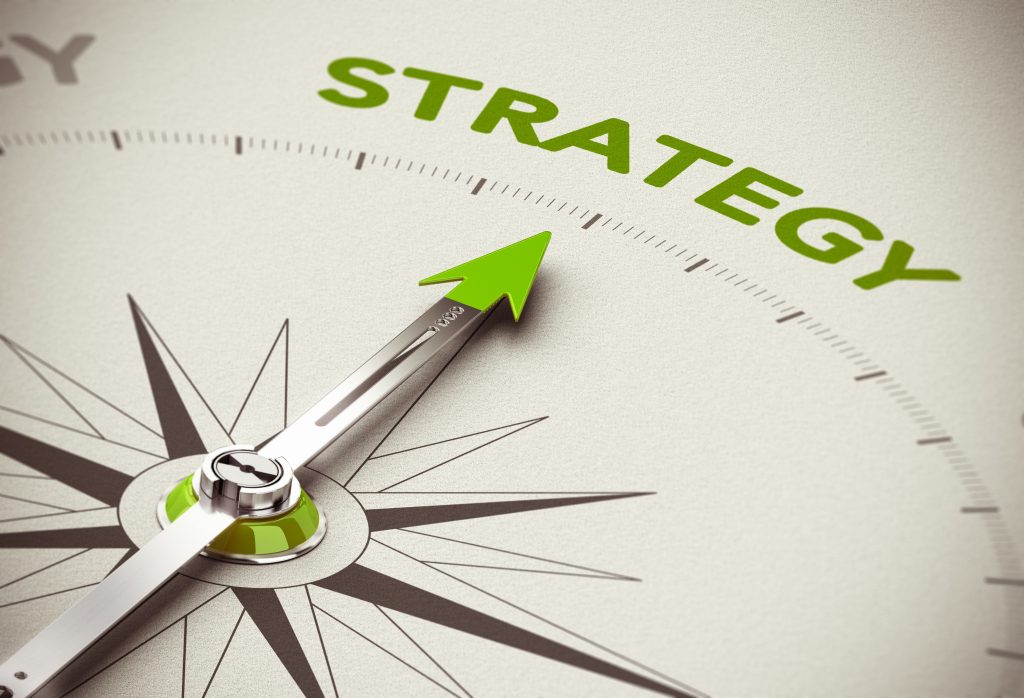Spontaneity and the ability to “fly by the seat of your pants” or “fake it until you make it” can be excellent qualities to have, but to survive the test of time in business you need a plan. If you’re serious about success, a clear business strategy must underlie all the day-to-day tasks you do.
“Strategy without tactics is the slowest route to victory, tactics without strategy is the noise before defeat.” —Sun Tsu, Ancient Chinese Military strategist

What’s A Business Strategy — and Why Do I Need It?
Occasionally, someone achieves a goal suddenly, or even accidentally, but it’s rare. Attempting to duplicate the success — in the absence of a strategy — is even rarer. Not only does a strategy ensure your success is repeatable, it also simplifies the tough decisions, annoying business details, and unglamorous drudge-work found in any business.
Here’s how strategy supports your success:
- Business strategy aids prioritization and decision-making. What should you be doing, what should you delegate, and what should you cross off your list entirely? What should you do first? Without a clear strategy, you’ll never know if what you’re doing daily makes sense. You can get off track, and spend time on busy-work tasks that don’t matter, but fill your time. Being strategic about your business ensures you use your time wisely and helps you determine what is most impactful. It also helps when you need to say “no” to requests or opportunities that don’t contribute to achieving (or are not in line with) your main goals.
“What business strategy is all about — what distinguishes it from all other kinds of business planning — is, in a word, competitive advantage. Without competitors there would be no need for strategy, for the sole purpose of strategic planning is to enable the company to gain, as efficiently as possible, a sustainable edge over its competitors.” —Kenichi Ohmae, Japanese guru known for this thinking on strategy
- Business strategy gives meaning to all your work-day tasks. When tasks have direction and meaning, you’ll have more energy to complete them — or delegate them, as the case may be.
“To be strategic is to concentrate on what is important, on those few objectives that can give us a comparative advantage, on what is important to us rather than others, and to plan and execute the resulting plan with determination and steadfastness.” ―Richard Koch, best-seller author of The 80/20 Principle
- Business strategy helps you talk about your business. Telling others what you do, especially on the spur of the moment, is much easier when you’ve already defined your vision and mission. Taking the time to work out your strategy — the thing that really sets you apart from your competition — makes your unique value proposition easier to articulate.
- Business strategy helps you attract investors, business partners, and prospective customers and employees. Without a clear business strategy and vision, it can be hard to get funding for your business’ growth and convince others of its importance and validity. A sound strategy helps ensure your business/project sounds possible and probable to others.
- Business strategy keeps YOU inspired too, and on the path toward your success. Minus a strategy, it’s easy to fall into chaos and anxiety. Your strategy, coupled with your vision, helps to keep your energy up when it begins to languish. A clear strategy also boosts employee morale while maintaining focus and productivity.
“With the level of uncertainty we see today, more people are asking, how can you develop a strategy in a world that keeps changing so fast? They are afraid that a set of rigid principles will hinder their ability to react quickly. I argue that it is precisely at such times that you need a strategy.” ―Orit Gadiesh, corporate strategist, and chairman of Bain & Company
Frankly, it can be a bit daunting to lay out a business strategy. However, with an inspiring vision, a purposeful mission, and a competitive strategy everything about your business becomes easier and more fulfilling.
“Strategy is not the consequence of planning, but the opposite: its starting point.” ― Henry Mintzberg, internationally renowned author, academic, and researcher

